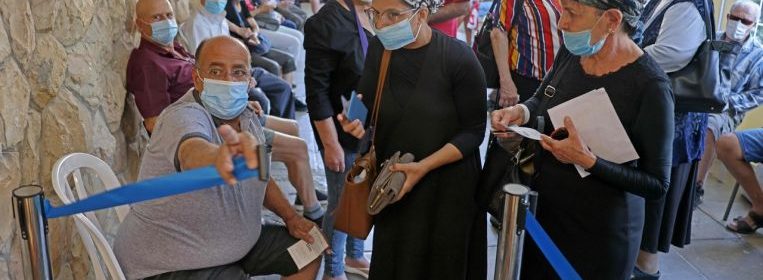Israel reimposes more restrictions as Covid-19 surges

JERUSALEM (AFP) – Prime Minister Naftali Bennett said on Wednesday (Aug 4) that vaccinations and renewed restrictions could spare Israel another lockdown, even as coronavirus infections soar.
“Our goal is to keep Israel open but not reach a situation where hospitals will say we’re full,” he said on a tour of a new vaccination centre in Jerusalem.
“We’re seeking to avoid that, and know when to hit the brakes,” Mr Bennett said.
“To refrain from harsher restrictions, we’ll get vaccinated, wear masks and maintain distancing.”
Mr Bennett’s government had announced a package of new restrictions on Tuesday, including requiring vaccine certificates or negative tests for entry to venues holding fewer than 100 people, and mandatory mask wearing in open spaces holding more than 100.
Announcing the new restrictions, the Cabinet’s Covid-19 committee warned the highly infectious Delta variant of the coronavirus was spreading fast and called on Israelis to “stop shaking hands, embracing and kissing”.
The Health Ministry has also expanded the list of countries from which arrivals are required to quarantine, regardless of their vaccination or testing status, to include France, Italy and the United States, among other countries.
For the past week and a half, Israel has been recording an average of more than 2,000 new cases a day, with 229 people in serious condition – the highest since April.
The rise in infections is a step back after Israel’s world-leading vaccine campaign drove down new Covid-19 cases from 10,000 a day to fewer than 100.
Israel had lifted most Covid-19 restrictions in early June, but began reimposing some of them last month following the resurgence of cases.
Nearly 60 per cent of Israel’s 9.3 million people have had two shots, mostly of the Pfizer/BioNTech vaccine.
But about one million Israelis still refuse to be vaccinated even though they are eligible.
Israel last week rolled out a booster shot for the over-60s. It has also made children as young as 12 eligible for inoculation.
Source: Read Full Article
